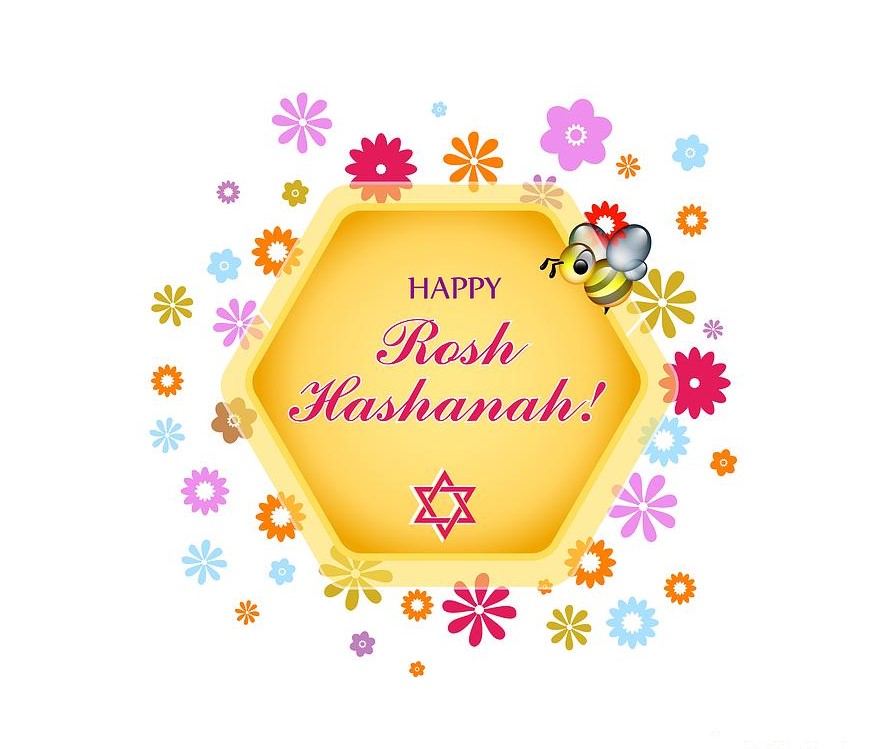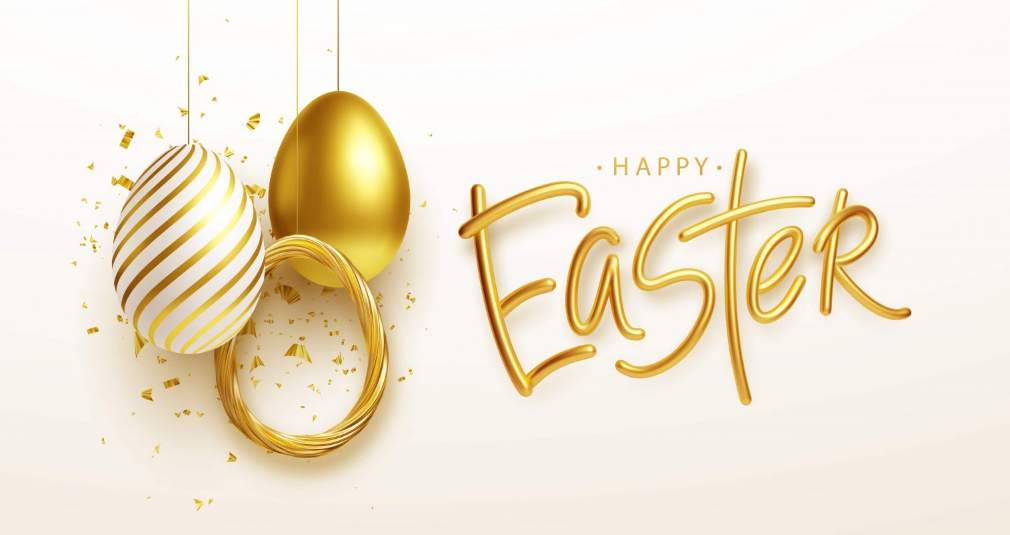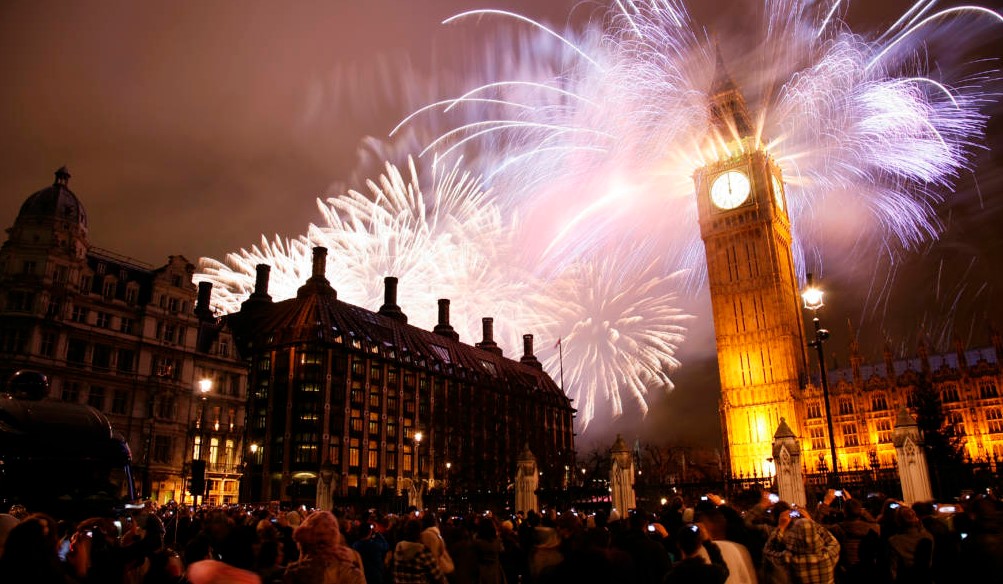 The Jewish New Year is known as Rosh HaShanah. This feast is known in the Bible as Yom Teruah, which means “day of shouting or blasting.” According to Leviticus 23:23–25, it is the first of the Jewish High Holy Days, which fall in late summer or early autumn in the Northern Hemisphere. Rosh Hashanah and Yom Kippur are both considered to be High Holy Days.
The Jewish New Year is known as Rosh HaShanah. This feast is known in the Bible as Yom Teruah, which means “day of shouting or blasting.” According to Leviticus 23:23–25, it is the first of the Jewish High Holy Days, which fall in late summer or early autumn in the Northern Hemisphere. Rosh Hashanah and Yom Kippur are both considered to be High Holy Days.
The two-day Rosh Hashanah celebration and observance starts on the first day of Tishrei, the seventh month of the ecclesiastical year, and lasts for two days. According to the teachings of Rosh Hashanah, the civil year begins at the start of the first month Nisan, the spring Passover month that commemorates Israel’s departure from Egypt, as opposed to the ecclesiastical lunar new year at the beginning of the first month of Nisan.
Rosh Hashanah is the classical anniversary of the creation of Adam and Eve, the very first man and woman according to the Hebrew Bible, as well as the beginning of humanity’s role in God’s world. This is in contrast to the ecclesiastical lunar new year during the first day of the first month of Nisan, the spring Passover month that commemorates Israel’s exodus from Egypt.
As per the Torah’s instructions, people sound the shofar on Rosh Hashanah in accordance with the Hebrew Bible’s command to “make a noise” on Yom Teruah. Its rabbinical traditions include partaking in joyous meals, attending synagogue services, and performing a specific liturgy on teshuva. Eating symbolic foods, such as apples soaked in honey, has become a ritual in an effort to conjure up a lovely new year.
Happy Rosh Hashanah Wishes Messages
- “As you look deep inside your heart on New Year, you may find new hope and new possibilities to make it a memorable year……. Wishing you Happy Rosh Hashanah …”
- “Warm wishes on Rosh Hashanah to you…. May this New Year unfold many new opportunities for you to grow and move ahead in life…”
- “Wishing you the most unforgettable celebrations on Rosh Hashanah…. May you welcome the new year with your loved ones and have beautiful festivities to enjoy…”
- “I wish that each and every day of the upcoming year is a beautiful one….. May there are more opportunities and fewer challenges….. Best wishes on Rosh Hashanah to you and your family…”
- “Today is the day of happiness and enjoyment with your family and friends…. I wish that Rosh Hashanah is full of joy and unforgettable moments… Happy New Year…”
Happy Rosh Hashanah 2024 – When Is It?
Wed, October 02, 2024 marks the start of Rosh Hashanah, which lasts until THU, October 4, 2024 at night. Since Rosh Hashanah is based on the Hebrew Calendar, which starts on the first day of the seventh month, the precise date changes every year. Almost often, Rosh Hashanah falls in September or October.
The Origins and Meaning of Rosh Hashanah 2024
The Bible has references to Rosh Hashanah under many titles, but the Torah does not specifically mention it. However, around the time Rosh Hashanah is set, the Torah makes reference to a holy event that begins on the first day of the seventh month of the Jewish calendar.
The term “Rosh Hashanah” first appears in the Mishna, a Jewish rule of law compiled in 200 A.D., even though the holiday was probably well entrenched by the sixth century B.C.
Nisan is the first month on the Hebrew calendar, while Rosh Hashanah falls at the beginning of Tishrei, the month when God is believed to have started the world. Because of this, Rosh Hashanah might be viewed as the world’s birthday rather than New Year’s in the secular sense; notwithstanding this, the civil year’s number rises on Rosh Hashanah. In addition to Rosh Hashanah, the Mishna mentioned three additional “new years” in the Jewish calendar.
The month cycle was restarted on Nisan 1 to calculate the length of kings’ reigns. Elul 1 established the tithing of animals for charitable or sacrifice and corresponded to the beginning of the current fiscal year. Shevat 15, now observed as the minor festival of TuB’Shevat, estimated the age of fruit-bearing trees.
Happy Rosh Hashanah Wishes for 2024
- May God grant you abundant success and good fortune. I wish you a pleasant Jewish new year with your family.
- I wish you a very happy Rosh Hashanah! I’m hoping you have an amazing year ahead of you!
- Enjoy the 2024 new year!
- May you and your loved ones share many happy and loving moments in the upcoming year.
- Your days be blessed by Yahweh in this great new year. Jewish New Year.
- A new year is a fresh start, so here’s hoping the coming year goes well for you! Cheers to Rosh Hashanah! Cheers to the New Year!
- Cheers to the new year!
- We should celebrate all of our benefits at Rosh Hashanah; may the Lord be your constant source of strength. Cheers to Rosh Hashanah! Thank you!
- Cheers to the fresh happiness, blessings, and hopes that the new year is bringing! Cheers to Rosh Hashanah! May this new year be fruitful and prosperous!
The Tradition of Rosh Hashanah
Saying “Shana Tova” is the customary method to wish someone a happy new year in Hebrew. This phrase means “A Good Year” in Hebrew.
Rosh Hashanah is marked by a variety of customs, including the following:
- spending time with family and friends, as well as going to synagogue.
- reflecting on the previous year, atoning for any transgressions, and then reflecting on the upcoming year to start over.
- Don brand-new, white clothing to represent purity.
- The ram’s horn (shofar), as previously indicated, is sounded on both mornings.
In accordance with Jewish belief, God decides whether each creation will survive or pass away in the upcoming year during the 10 Days of Awe between Rosh Hashanah and Yom Kippur. According to Jewish law, on Rosh Hashanah, God puts the names of the virtuous in the “book of life” and executes the wicked; those who fall seen between two groups have till Yom Kippur to repent.
Since Rosh Hashanah and the days leading up to it are a time for prayer, good actions, reflection on the past, and making apologies to others, observant Jews use these days as a time for these things.
Finally:
Rosh Hashanah is a somber and reflective festival, in contrast to contemporary New Year’s celebrations, which are frequently boisterous gatherings. Because Jewish traditions disagree on the length of the celebration, some denominations observe Rosh Hashanah.
Just one day while others observe it for two days. Since work is forbidden, devout Jews spend the majority of the holiday at synagogue.
Rabbis and their congregations read from a unique prayer book known as the machzor for both Rosh Hashanah and Yom Kippur. Because the High Holy Day prayer services include distinctive liturgical texts, melodies, and customs.


